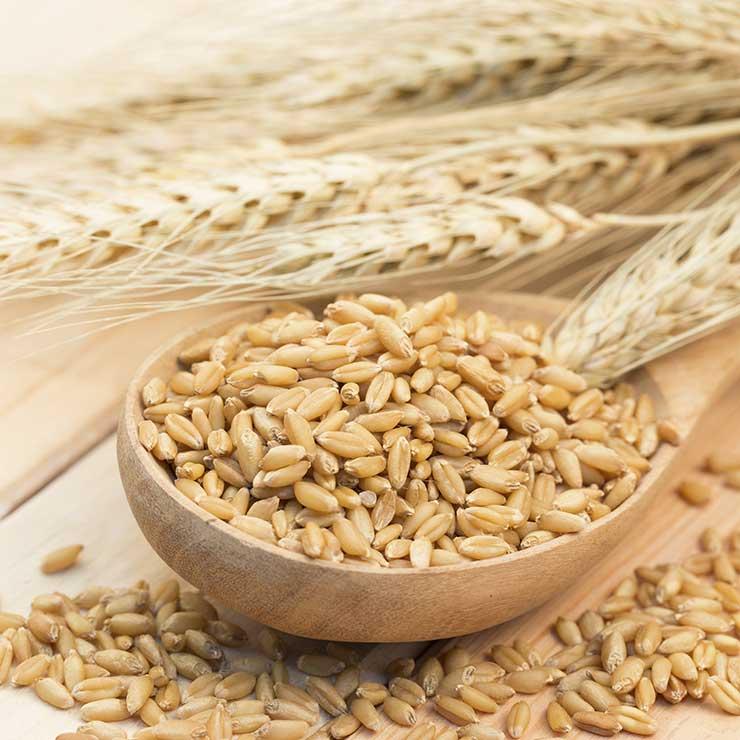It's not surprising that so many people use food as a tranquilizer, says Dori Winchell, PhD, a psychologist in private practice specializing in eating disorders in Encinitas, CA. "From the time you're a baby through childhood, whenever you're unhappy, someone soothes you with a cookie. We've been pairing emotions with eating for so long that it's little wonder we know anything else." What's more, admits Dr. Winchell, food works. "Food can create soothing changes in brain chemistry, and even the simple act of chewing will increase endorphins and ease your pain."
To top it off, the stress you feel when you're upset actually makes you feel hungry and creates body fat. Chronic stress from deadline pressures at work to painful baggage from your past triggers your body to increase the production of cortisol, the hormone that encourages fat storage, particularly around the belly, and encumbers weight loss.
Your body also pumps increased adrenaline into your bloodstream, which makes your pancreas churn out insulin. That leads to incessant hunger, explains Pamela M. Peeke, MD, MPH, assistant clinical professor of medicine at the University of Maryland School of Medicine in Baltimore and author of the best-selling book Fight Fat After Forty. You eat for relief, which, unfortunately, lasts only as long as the last bite. Then the problems you were trying to solve with food suddenly reappear. (Surprise: They never went away.) And you feel like a failure: Not only didn't you solve your problems, you created a new one, right there around your waist!
The solution? Find tools besides a fork to attack emotional angst. In the time it takes to forage for your favorite quick-fix food, you can take steps to break the cycle, beat stress, eliminate emotional eating, and yes, finally experience some weight loss for good without even trying.[pagebreak]
Feed Your Real Hunger
Sometimes food cravings mean you want food, but often, especially for emotional eaters, they're saying you want something else: It could be creative stimulation, companionship, or more satisfaction in life. That was true for Karen Jones (not her real name) of Rockville, MD, who shed 70 lb from her 210-lb frame when she identified her eating triggers as boredom, frustration, and loneliness. "I'd tried, and ultimately failed, countless diets," says Jones. "But once I understood why I was eating and started confronting those issues head-on, the weight came off without any diet at all."
Not sure what you're actually "hungry" for? Here's how to figure it out and "feed" it:
Play detective. Keep a food journal, suggests eating expert Joan Chrisler, PhD, professor of psychology at Connecticut College in New London. "Every time you reach for food, write down what you eat and how you were feeling. Bored? Frustrated? Happy? Before long, you'll see a pattern. Then you can start to break it."
Shop for some stimulants. Do you eat when you're bored? Time to make a new "grocery" list, says Dr. Chrisler. Buy inexpensive, accessible things such as books, CDs, and tapes or DVDs of favorite films that provide the emotional lift you're seeking from food. Keep them handy, and turn to them when you're down.
Make a human connection. "For some people, food is love," says Edward M. Hallowell, MD, psychiatry instructor at Harvard Medical School. "You may be hungry for feeling, closeness, and companionship." Or, like Karen, you eat to escape painful feelings. "Make a human connection instead," suggests Dr. Hallowell. "Call your best friend." Make sure you pick someone who makes you feel good. If you have issues with a parent or friend, calling them could lead you to finish off an entire row of cookies. (Just make sure you call the right friend—take our quiz How Healthy Are Your Friendships? to find out.)[pagebreak]
Create new habits. Many people eat every time there's a lull, such as during TV commercials, says eating disorders expert Sandra Haber, PhD, adjunct associate clinical professor at Adelphi University's Derner Institute in New York City. Be prepared for those lulls. "Keep manicure supplies, stacks of empty photo albums, or a cross-stitch project by the TV for something to do," she suggests. Even better, find a hobby. When you're engrossed in something you love, you forget all about eating, especially if you're active. Falling in love with bicycling, for instance, has helped Karen Jones maintain her new 140-lb figure.
Head toward your dreams. Maybe you're hungering for a big change, such as a more satisfying career. Go for it, one little step at a time. "Take a class at a community college, or just start talking to people in that field. Moving toward goals is exhilarating," says Dr. Peeke, who saw one client drop 60 lb once she left a safe but unfulfilling job and pursued her dreams to be a caterer.
Rethink your rewards. Like most people, you probably eat to celebrate happiness too. (Don't most happy occasions involve eating?) Find new, affordable rewards such as earrings or tickets to a play or movie.
Put Down Your Pain
Suppressed emotional pain can show up as excess pounds, even if that pain is from your deep past, says Dr. Winchell. Research shows that bad childhood experiences can lead to self-nurturing with food. You can't change the past, but you can improve the present. Here's how.
Confront the here and now. "If dwelling on the past burned calories, no woman would be overweight," says Dr. Peeke. "Instead of ruminating, take action." If your mother was abusive, resolve to be a better mother yourself. If certain relatives upset you, limit your time with them. And if you need help, get therapy. "When you confront your pain head-on, it gives you control of it, so you don't need food," says Karen Jones. (Need help? See 10 Ways To Make Peace With Your Past.)[pagebreak]
Speak up. "We all want harmony, but achieving true harmony doesn't mean stuffing down feelings—and food—like many women do," says Dr. Haber. "It means speaking up and letting the people in your life know how you feel. Finding that courage is empowering," she says, and it can help you deal with the people in your life, stress, and food.
Rewrite history. "When was the last time you succeeded, laughed, or had a great time?" asks Dr. Winchell. "How did you feel? Rewrite your mental history books to focus on those moments, and you'll spend less time eating your sorrows away." School, work, and society teach us to concentrate on our mistakes, so we can correct them. The result: We remember all the bad stuff. Every time a bad memory pops up, replace it with a good one. You'll feel better about your life, and set yourself up for weight loss.
Make nice with yourself. For a day, pretend you have a cartoon bubble over your head, and catch everything you say to yourself, suggests Dr. Haber. Write it down, and read it back. Negative self-talk keeps you buried in your pain. "Keep saying you're fat and lazy, and it's little wonder that you hide away and feed yourself junk," she says. Instead, offer yourself the same encouragement you'd give to a friend. It feels artificial at first, but when you catch yourself saying something mean, stop, and make it nice.
Feed your soul. Nurturing your spiritual self is a way to heal pain and promote weight loss. In surveys by The Solution, a weight loss program that focuses on skills in self-nurturing and limit setting, program founder Laurel Mellin, RD, the author of a book by the same name found that the 73% of participants who developed a deeper sense of spirituality were more likely to maintain their weight loss and had seven times as much weight loss as those who didn't gain spiritual depth. Church is one place to find spiritual purpose, but there are other places to look. "Try volunteering," says Dr. Peeke. "Serve food at a shelter. Help an adult learn to read. When you teach someone else, you learn to believe in yourself. You also get in touch with your human spirit."[pagebreak]
Step toward success. Don't let the fact that kids used to taunt you for being fat define you, says Dr. Peeke. "Say, 'Okay, I have a problem with weight, but that doesn't make me a terrible person.' Focus on something you do well. When you succeed at something, your self-worth increases, and you feel able to succeed in other areas of life, too."
Learn to Relax
To completely conquer emotional eating, you need to trump stress, the source of anxiety and artificial food cravings. "I was amazed to learn that all my pangs didn't mean I was really hungry," says Naomi Henderson, 58, an entrepreneur in Bethesda, MD, who found herself growing along with her new company. "I'd eat a full meal and be ravenous 45 minutes later! All my cravings were from stress." Stress-taming tricks such as beginning each day with a 20-minute blissful bath instead of a hurry-up shower helped her drop from a size 18 to a 12.
Of course, tried-and-true stress blasters such as steamy baths and good books help douse stress for the moment. But to really give it the heave-ho, you need to stress-proof your body with lasting relaxation exercises. Two of the best: yoga and meditation. These practices use deep breathing and mental concentration to make you more aware of your body and emotions. Deep-breathing relaxation exercises also affect your body's physiology, lowering blood pressure and slowing heart rate, making it easier to distance yourself from the everyday worries that trigger stress and overeating.There are many variations of meditation. Some require professional instruction; others are extremely simple. For an easy, relaxing meditation, see The 5-Minute Meditation.
Tips to Stop Emotional Eating:
- During down times, remember good times: Stick old photos in albums instead of eating chocolates.
- Comfort yourself with a new pair of shoes. They'll look better on you than the extra weight you'll gain from a Boston cream doughnut.
- Keep a little project near the TV to avoid eating during commercial breaks. This one will really pay off.
More from Prevention: 5 Ways To Put A Stop To Stress Eating




